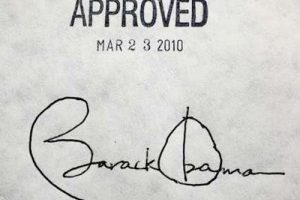The actions of the Trump administration have raised significant concerns regarding the erosion of constitutional boundaries. From attempts to unilaterally control state and local funding to the dismissal of inspectors general without proper notice, these actions challenge the foundational principles of our democracy. The abrupt firing of inspectors general across various government agencies, without providing the required notice or rationale to Congress, has been a point of contention. This action not only disrupts the system of checks and balances but also raises questions about the administration’s commitment to transparency and accountability.
Under the Trump administration, constitutional norms are being trampled with alarming boldness—not behind closed doors, but in the open, with a level of impunity that should concern every American, regardless of political affiliation. Congress has failed to hold Trump fully accountable. The courts have been slow to intervene. And too many Americans have accepted these abuses as normal, simply because they align with their political beliefs.
History is a mirror. It reflects not only where we’ve been but also where we might be headed. Too often, we celebrate presidents for their electoral victories without examining the constitutional lines they’ve crossed to achieve them. If we truly value democracy, we need to be honest about how often presidents have bent, broken, or outright ignored the Constitution—because if we don’t, we risk repeating those mistakes.
I’ve spent much of my life studying the patterns of power—whether in business, finance, or politics. I’ve seen firsthand how unchecked authority can shape the future of an industry, a city, or, in this case, an entire nation. As I’ve grown in my understanding of public policy and history, I’ve realized we must always be willing to question those in power, no matter who they are or what party they belong to.
The U.S. Constitution wasn’t designed to be an inconvenience to presidents; it was meant to be a hard boundary—a guide for leadership that puts the people before power. But history has shown that, time and time again, presidents have tested those limits.
• Abraham Lincoln suspended habeas corpus, allowing Americans to be jailed without trial—an extreme move, even in the chaos of the Civil War.
• Woodrow Wilson criminalized political dissent during WWI, violating First Amendment rights, and led to mass arrests of political opponents.
• Franklin D. Roosevelt forced Japanese Americans into internment camps, stripping them of their constitutional rights in the name of national security.
• Harry Truman seized control of steel mills during the Korean Warm claiming it was necessary for national security.
• Richard Nixon abused executive privilege, attempting to hide his crimes behind the very office he swore to uphold.
• George W. Bush authorized warrantless wiretaps and torture, bypassing legal protections in the name of fighting terrorism.
• Barack Obama overstepped with executive orders, implementing policies like DACA without congressional approval, raising questions about presidential authority.
• Donald Trump attempted to overturn the results of an election, undermining the democratic process itself.
These aren’t opinions; they’re historical facts. Each of these presidents, regardless of political affiliation, believed their actions were necessary. Some were corrected by the courts. Others went unchallenged. But the damage was done. The question isn’t whether these men were great leaders—many of them were—it’s whether we are willing to acknowledge that even great leaders can break the rules.
I’ve built my career by paying attention to patterns, numbers, and human behavior. I’ve learned that people repeat what they refuse to acknowledge. If we don’t study how power has been abused in the past, how can we possibly prevent it from happening again?
In business, if someone mismanages money or bends the rules, there are consequences. But in government, we often allow blind loyalty and partisanship to excuse unconstitutional actions. We downplay mistakes when they’re made by “our” side and amplify them when they’re made by the opposition. That’s not governance—that’s tribalism. And it’s how democracies fail.
We saw it with Trump’s attempts to overturn the 2020 election—a direct threat to democracy that too many people excused because they liked his policies. But we also saw it when Obama expanded executive power through unilateral decisions, setting a precedent that now President Trump is clearly exploiting.
It’s easy to call out abuses of power when it’s someone we already dislike. It’s harder when it’s a president we admire. But if we’re truly committed to protecting the Constitution, we have to be willing to hold every leader accountable—even the ones who inspire us.
History has proven that when one president expands power, the next president rarely gives it back. It’s a cycle that’s been growing since the country’s founding. What started with small infractions—like Jefferson purchasing Louisiana without constitutional authority—has turned into a system where presidents feel increasingly entitled to bypass Congress, override checks and balances, and test the limits of their power.
If we don’t study history, if we don’t hold our leaders accountable, we are saying that the Constitution is optional. And when laws become optional for those in power, democracy is in danger.
The Trump administration has revealed just how fragile our democracy really is. The next election will not magically fix what has been broken. If we don’t set clear boundaries for presidential power today, we will be left with leaders who believe they can govern without restraint.
I’ve spent years refining my own understanding of business, strategy, and power dynamics, and I know this much: when power goes unchecked, it only grows. That’s not fear-mongering. That’s history.
The Constitution wasn’t written as a suggestion. It was meant to protect the people from the government, not the other way around. But if we fail to demand accountability, we might wake up one day and realize that the very democracy we thought we had is already gone.
And if we don’t? We’ll be the generation that let history repeat itself—while pretending we never saw it coming.




